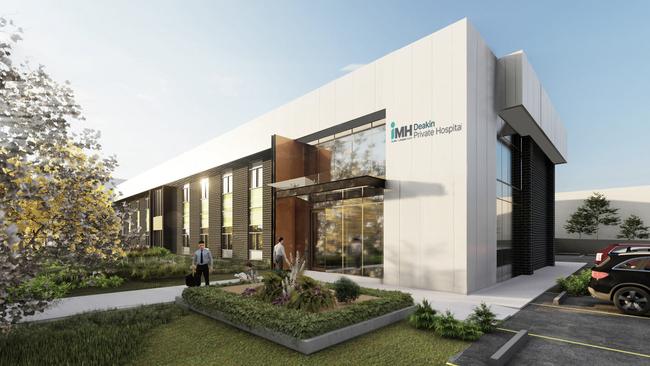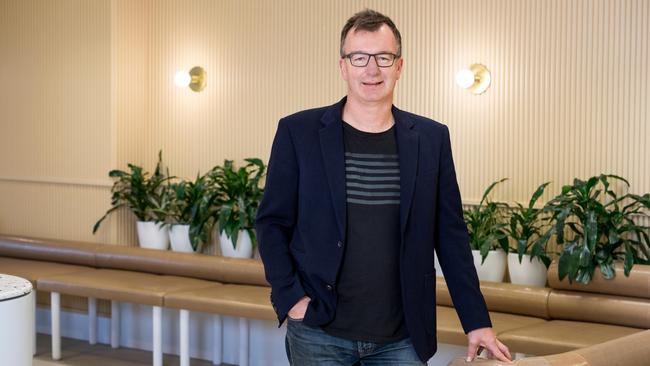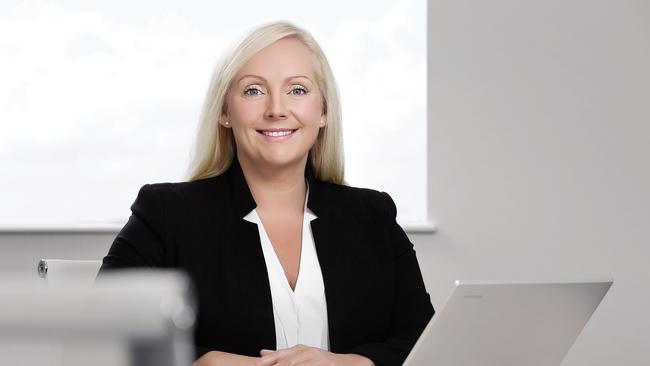Medibank strikes new hospital ownership deal in $31m partnership with Aurora Healthcare
Australia’s biggest health insurer will establish three mental-health hospitals as it expands from health funder to health service owner.

Medibank is expanding its foray into hospital ownership, launching a joint venture with Aurora Healthcare to deliver mental-health services.
The 50-50 partnership, known as iMH, will initially involve investing $31m across three hospitals in NSW and the ACT.
While it will create an extra 153 mental-health beds, it will have a focus on community-based care to avoid relapses and hospital readmissions.
Andrew Wilson – a practising psychiatrists and chief executive of Medibanks’ medical services division Amplar Health – said mental-health services had been “hospital-centric” and the joint venture aimed to up-end this model, delivering patients care “when and where they need it” to fuel a stronger recovery.
“People are being readmitted, often within 12 months; that really is an indictment on the existing system,” Dr Wilson said.
“And that’s really a big focus for us, to ensure better care. If we get that model right, then people will be in hospital when they need to be and not as some sort of formulaic approach because that’s the only option.”
Medibank has set aside up to $250m as it transitions from hospital funder to hospital owner. It has already secured three hospital partnerships, starting with the minority stake it took in East Sydney Private Hospital at Woolloomooloo in mid-2020.
The company, Australia’s biggest health fund, has since replicated such deals in Melbourne – where it will build a $64m hospital with 42 doctors – and in northwestern Sydney where it has invested $29.6m with a group of surgeons to launch a new short-stay orthopaedic centre.
Dr Wilson said the latest investment with Aurora – which operates 16 private hospitals and community services with almost 1000 mental-health beds – was not about cutting costs by avoiding expensive hospital readmissions.
“It’s about spending the money wisely for consumers, so getting the right care at the right place for our members and other participants,” he said.

Community-based mental health-care – whether involving visits to clinics, home or virtual care – is an increasing trend as demand for mental-health services soar and dedicated hospital beds continue to be limited.
Australia’s biggest private hospital provider, Ramsay Health Care, opened 11 psychology clinics last July and plans to establish 20 more in the next two years as it moves more mental-health services outside hospitals and into the community.
Despite Ramsay having a similar strategy to Medibank and its partnership with Aurora Healthcare, tensions endure between hospital groups and health funds, who are looking to become more involved in clinical care.
Critics say it is a step towards US-style managed care, where insurers dictate which hospital a policyholder can receive treatment at.
But Medibank has attempted to allay these concerns by not taking full ownership of its hospital ventures, so doctors and clinicians retain their independence.

said: “The beauty of the joint venture with Medibank and Aurora is Aurora will be the operator.
“We’ve been working for 12 months on this integrated model. We’ve undertaken a lot of consultation with our psychiatrists, patients, to establish that this model of care is what is needed for an improvement in private mental health.
“The model will address the clear unmet demand in the community. In our network alone, the wait list for outpatient psychiatry has been at around six months over the past two years. Providing people with treatment options beyond what has historically been solely hospital- centric care will help to support greater access, choice and flexibility.”
Joanne Levin will lead iMH as its chief executive. Ms Levin is a senior executive at the Aurora Healthcare business and brings extensive experience in hospital operations and clinical governance, and a “strong track record” in mental health service development.
Aurora Healthcare will contribute two hospitals in New South Wales and the Australian Capital Territory to iMH, with its Hirondelle Private Hospital in Chatswood to be converted into a 45-bed mental-health facility, while Deakin Private Hospital in Canberra will feature 52 beds, including the city’s first dedicated youth private mental-health beds.
For its third hospital, the joint venture will invest in a new specially designed 56-bed mental-health facility to be built in Alexandria, NSW.
“A patient might access treatment at home or in the community following a hospital admission, or alternatively access these services if a hospital admission is not required in the first instance,” Ms Strickland-Bellamy said.
“It’s ultimately about the most appropriate treatment pathway for each individual patient, regardless of their private health insurer.
“All decisions about their suitability for the model will be made by the patient alongside their doctor and the hospital’s clinical team.”




To join the conversation, please log in. Don't have an account? Register
Join the conversation, you are commenting as Logout